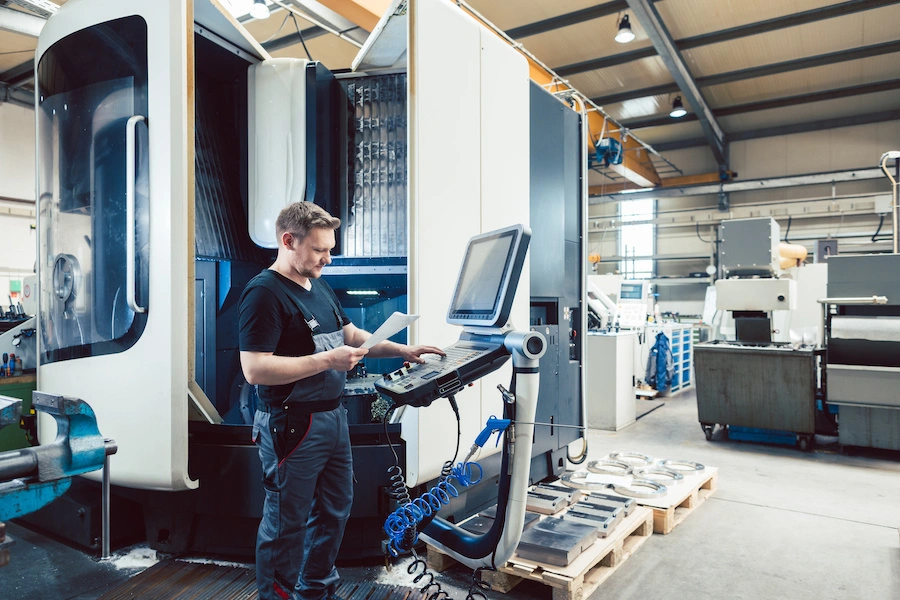
A CNC (computer numerical control) machinery operator is responsible for setting up and operating CNC machines to produce precise and accurate parts or components for various industries. Here are some of the main responsibilities of a CNC machinery operator:
- Setup: The operator must set up the machine by loading the necessary tools and materials, and entering the correct parameters into the CNC controller. They must also make sure the machine is properly calibrated and that all safety procedures are followed.
- Operation: The operator must monitor the machine while it is running to ensure that it is producing parts to the required specifications. They may also need to adjust the machine's settings or tools as needed to ensure accuracy and quality.
- Maintenance: The operator is responsible for maintaining the machine, which may include cleaning, lubricating, and replacing worn or damaged parts. They must also perform regular inspections and repairs to keep the machine running smoothly.
- Quality control: The operator must inspect the finished parts to ensure they meet the required specifications and quality standards. They may use various measuring tools and equipment to check dimensions and tolerances, and may need to make adjustments to the machine or tools to improve quality.
- Record-keeping: The operator must maintain accurate records of the machine's operation, including the settings used, production rates, and any maintenance or repairs performed. This information is important for tracking performance and identifying areas for improvement.
To become a CNC machinery operator, one typically needs to have a high school diploma or equivalent and complete a vocational or technical program in CNC machining. On-the-job training is also common, as each machine may have unique operating procedures and requirements. In addition, operators must be detail-oriented, have good mechanical skills, and be able to read and interpret blueprints and technical drawings.


 简体中文
简体中文







